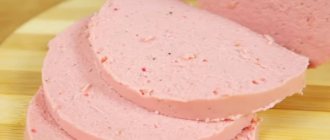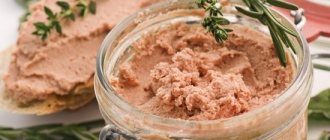Properties of Greek yogurt
How much does Greek yogurt cost (average price for 1 jar)?
Moscow and Moscow region.
55 rub.
Filtered or Greek yogurt, yogurt cheese, dahi or labraneh is a type of yogurt that is filtered through a paper filter or cloth to remove the whey. Due to this, the product acquires an average consistency between cheese and yogurt, while maintaining the characteristic sour taste of the latter.
Greek yogurt is a traditional Eastern Mediterranean, Middle Eastern and South Asian dish that is often used in other foods due to its ability to resist curdling even at high temperatures. However, in modern production, like most yogurts, Greek is increasingly made on the basis of milk, which is enriched by evaporating part of the water, or by adding fat (optionally, milk powder).
In Western Europe and the USA, Greek yogurt is also popular because it has a rich structure and at the same time lower fat content when compared to regular yogurt. In addition, the filtration process removes the whey from Greek yogurt, resulting in a higher protein content and lower carbohydrate content.
In the West, a product called "Greek yogurt" is synonymous with filtered yogurt due to the marketing success of the Greek company FAGE. This corporation, together with several other large Greek dairy companies, today exports its products to dozens of countries around the world.
In Greece itself, this yogurt was traditionally made exclusively from sheep's milk, but in recent years local cow's milk has been increasingly used. Residents of this country widely use Greek yogurt in everyday cuisine, but mainly as a base for tzatziki sauce and a number of desserts with the addition of natural honey, peach, cherry syrup or jams.
What is Greek yogurt?
In Mediterranean countries, this fermented milk product is made from sheep or goat milk. In mass production, cow's milk is most often used as the basis for this dairy product. Greek yogurt is filtered yogurt cheese. During its manufacturing process, the Greek dairy product is filtered to remove whey.
The consistency is thick, homogeneous and light. There is nothing artificial in the product, but only natural ingredients. This type of dairy product contains:
For preparation, cow, goat or sheep milk is used and combined with live bacteria. After obtaining an almost finished mass, it is filtered. This results in a thick consistency. The product is now ready for use. All-natural Greek yogurt should not have a long shelf life. If the packaging indicates that the shelf life is no more than a month, then it is completely natural.
After the ripening process, there is no whey, sugar or lactose left in it. However, it contains valuable live bacteria, a lot of calcium, protein and magnesium. The Greek product has a characteristic creamy taste with a pleasant sourness.
Nutritionists recommend: an excellent alternative to Greek yogurt is the same low-calorie product matsoni.
Benefits of Greek yogurt
The benefits of Greek yogurt for the human body are due to its high protein content, which is very important for those who are on a diet. By consuming Greek yogurt and its derivatives for breakfast or dinner, you do not overload your body with fatty foods, thereby demonstrating respect for your health.
The fairly high calcium content also emphasizes the benefits of Greek yogurt - thanks to this substance, bones are strengthened and metabolism is accelerated. The protein in the product, in turn, acts as a stabilizer of blood glucose levels, preventing hypoglycemia, which often develops in people on a strict diet.
Nutrition Facts of Greek Yogurt
It is noteworthy that due to the special manufacturing method, Greek yogurt has much more protein than regular dairy product. So, yogurt contains about 15-20 g of protein, and it also has a very low amount of sugar, which is very important. I would like to note the low fat content in Greek yogurt - only 0.2-4 g, while in regular cheese and other fermented milk products this number can reach about 15 grams. But, as a rule, it is these fats that cause the appearance of extra pounds, and also provoke the development of cardiovascular diseases.
Among other things, Greek yogurt contains various minerals - potassium and calcium, low salt content (which is also very healthy) and other substances. Speaking of calcium, the amount of it in yogurt is quite enough to provide 20% of your daily calcium intake. The beneficial composition of the product is such that Greek yogurt becomes useful in various cases.
Greek yogurt - what is it?
Greek yogurt has a denser consistency compared to our usual yogurt (see photo). This is due to the use of almost 2 times more milk. In addition, during manufacturing, almost all the whey is removed from the product. Greek yogurt contains no lactose or sugar.
Doctors consider it a product of longevity, and recommend consuming up to 3 servings every day.
Cow, sheep or goat milk is used to make it. It is combined with living bacteria. Once the yogurt is made, it is filtered to achieve a thick consistency. The product is then packaged and sent for sale. In some European countries, Greek yogurt is also prepared, but it contains special thickeners.
Greek yogurt has a very unusual taste, which may vaguely resemble Georgian matsoni with its pleasant creamy notes. This tasty product is often used by chefs to prepare equally tasty and appetizing dishes. For example, Greek yogurt is often used to season okroshka; it is used to make muffins, pies and other baked goods, and is also sometimes used to dress salads.
The fat content of the product may vary depending on the method of its preparation. So, in stores you can find yogurt with a fat content of zero, two and four percent fat. Compared to other dairy products, which may have a minimum fat content of twenty percent, Greek yogurt is considered the lowest in calories due to its low fat content.
How is Greek yogurt different from regular yogurt?
Greek yogurt, although similar to regular yogurt, still has several significant differences. In our article you can find the answer to your question, as well as find out which product is more beneficial for the body.
One of the main differences between Greek yogurt and regular yogurt is its consistency. Regular yogurt is thinner, despite the fact that it is additionally dehydrated during the cooking process by placing the milk mass on a sieve or cheesecloth. As for Greek yogurt, it is thicker than regular yogurt due to its high protein content and is more reminiscent of sour cream in consistency.
The process for preparing regular and Greek yogurt is the same, but after ripening, as much whey as possible is removed from the latter to thicken the product.
Greek yogurt tastes richer and creamier, as does the smell. Since a large amount of whey is removed from the product, it becomes healthier due to its high protein content. That is why it is generally accepted that Greek yogurt is more beneficial for the body than regular yogurt.
How to select and store?
When choosing Greek yogurt, first of all pay attention to the composition of the product. It should not contain any preservatives, thickeners, etc.
It is best to buy a low-fat option, no more than 4%.
Be sure to look at the expiration date; if the value is more than a month, then you can be sure that the composition contains preservatives.
If unopened, Greek yogurt can be stored in the refrigerator according to package directions. If you open the jar, you should eat it right away.
Beneficial features
The beneficial properties of Greek yogurt are due to the content of various vitamins, minerals and other substances in it. As for calorie content, it is at a fairly low level, so Greek yogurt can be consumed for weight loss and obesity. In addition, it contains no sugar, which helps improve metabolism.
This yogurt has the ability to stabilize sugar levels, so it is recommended to use it for diabetes.
This product is useful if you have problems with the cardiovascular system.
Greek yogurt contains a lot of calcium, almost 10% of the daily requirement. Its combined action with probiotics increases the body's protective functions and also helps cope with inflammation in the intestines.
Greek yogurt reduces the risk of osteoporosis and supports weakening muscles.
Thanks to the presence of living bacteria, the digestion process is normalized, which helps to better digest other foods.
Greek yogurt has been proven to have a positive effect on the functioning of the nervous system, and therefore it helps to cope with depression.
Use in cooking
Greek yogurt is used in cooking similar to the more familiar version of this product. At home, the national dish is prepared from it - tzatziki. This is a kind of spread on bread or sauce. In addition, this yogurt can be used as a gravy for meat dishes, and it can also be added to baking dough.
Greek yogurt is an independent product that can be varied with honey, berries, herbs, etc.
It can be used instead of mayonnaise or for making other sauces.
Greek yogurt is a rare guest in stores, so sometimes a recipe requires replacing this ingredient. But this is not so easy to do, since the product has a special taste and consistency, unlike ordinary homemade yogurt. However, there is a list of ingredients that are suitable as a replacement. These include the following products:
- Mechnikov's curdled milk;
- matsoni;
- sour cream with a fat content of no more than 20%.
The choice of product to replace Greek yogurt depends on the type of dish you want to prepare. So, for Greek sauce you can use thick low-fat sour cream, and for salads or baked goods you can use yogurt. Armenian or Georgian matsoni is also suitable for this purpose, but it has a slightly saltier taste than Greek yogurt.
How to make natural Greek yogurt at home?
This product is still rare in our area, but you have an alternative - make homemade Greek yogurt at home. To do this, you need to take 800 ml of cow, goat or sheep milk and 130 ml of natural yogurt or sourdough.
Please note that milk should not be pasteurized or boiled, since in this case there are no beneficial bacteria in it.
Heat the milk a little, but the temperature should not be more than 45 degrees. Then combine it with yogurt or sourdough. Cover the container with a blanket and leave for about 8 hours.
To achieve a thick consistency, the finished yogurt must be strained through a sieve, which must first be lined with gauze. Pour yogurt into it and leave for several hours.
As a result, the whey will be removed, and the Greek yogurt will remain in the sieve.
This is how easy it is to make delicious and healthy Greek yogurt at home!
Cooking in a slow cooker
A slow cooker is a very useful kitchen gadget that can be used to easily prepare Greek yogurt. To do this, you will need glass containers, which can be jars or deep microwave-safe dishes.
When preparing Greek yogurt in a multicooker, you need to pour water into the bowl of the device so that it covers the container with the product by a third. The cooking time for the dish is 6-8 hours, and the cooking process itself is as follows:
- Select a suitable container and place in it one jar of regular homemade yogurt, which you decided to use for the starter.
- Warm a liter of milk to room temperature, then begin to gradually pour it into the container with yogurt, thoroughly mixing all the ingredients until smooth. Pour milk half a glass at a time, without stopping stirring the mixture. If you add all the liquid at once, the consistency of the yogurt may suffer.
- Cover the bottom of the multicooker with a clean, thick cloth so that the container with yogurt does not crack during cooking, and also to avoid damaging the gadget.
- Place a jar or plate with the starter and milk on the bottom of the multicooker, then pour water into the bowl of the device.
- Select the “Yoghurt” mode, and if it is not available, set the temperature to forty degrees in the “Multi-cook” mode. Cooking time: eight hours.
- After the required amount of time, you can remove the yogurt from the multicooker and let it cool. In the meantime, prepare a sieve and a deep container on top of which you need to place it. After this, pour the yogurt from the jar into a sieve so that the whey drips into the container, and send this structure to the refrigerator to infuse for six hours.
- After the liquid drains, only a creamy mass remains. This will be real Greek yogurt, prepared at home.
Why low-fat yogurt is bad
After decades of commercials promoting how easy it is to shed pounds with low-fat foods, consumers are increasingly turning away from low-calorie options in favor of healthier, traditional-fat options. Millennials—those born between 1982 and 1993—are buying less low-fat yogurt than ever before, according to research. And, importantly, nutritionists only support this behavior.
Let's figure out why you should abandon low-fat yogurts in favor of yogurts with fat content indicated on the packaging.
What are the benefits of yogurt?
Yogurt as a product boasts several serious benefits, including a high content of protein, calcium and probiotic bacteria. But today there are many (and even too many) varieties of yogurt on the market, which sometimes leads to confusion. Thus, often “healthy” zero-fat yogurts are packed with sugar and artificial sweeteners, which forces people who are careful about their diet to abandon them in search of a worthy alternative.
How to choose the right yogurt
To get the most, choose foods that are reduced in fat, but not low-fat. Among other things, this will help you keep you feeling full longer (due to the fat in the composition), and the vitamins A and D in the composition will speed up the body's absorption of nutrients. However, special varieties, such as Greek yogurt, provide more protein.
Nutrition experts remind you: before you buy any yogurt, pay attention to the label. Ideally, there should be no sugar or artificial sweeteners or flavorings - if you want to add flavor to your yogurt, the logical way to do this is with fresh fruit. Still lacking sweetness or spice? Cinnamon and honey will help.
Why diet foods are losing popularity
Consumer perceptions of “healthy food” are changing. Low-fat foods were something of a superstar in the '80s and '90s, but more recent research emphasizing the importance of different types of fat and fiber in the diet has taken its toll. Today, the priority is high-protein foods, whole grains, and organic foods in general.
Statistics show that over the past five years, sales of reduced-fat and/or calorie-reduced products have declined sharply, while consumers have become more aware of the labels "natural", "non-GMO", "gluten-free" and "fit for vegans" on the packaging. However, buyers are always concerned about additives such as preservatives and food coloring.
Does this mean that in another five years we will be faced with a new gastronomic trend? Quite possible. But for now, truly healthy food is at the peak of popularity - and this is good news.
What's special about Greek yogurt?
Greek yogurt is a dish that is also known as labraneh or yogurt cheese. Creation occurs by filtering the fermented milk mass through cheesecloth or paper.
The traditional recipe includes goat's or sheep's milk , and in recent years cow's milk has increasingly become the raw material. This animal product is used not only as a self-sufficient dish, but also as an element of sauces, salads, and desserts.
Most often, yogurt dressing is replaced with mayonnaise or sour cream. The addition of a large volume of milk and the complete removal of whey from the composition determines the taste of yogurt, which is similar to Mascarpone, in addition, it does not contain lactose and sugars.
The fat content of the finished crop varies depending on the production method and can be 0%, 2%, 4%.
The benefits and harms of Greek yogurt
Greek yogurt is a substance that has a unique set of characteristics that have a positive effect on the body:
- Promoting weight loss, activating metabolic processes and controlling the stability of blood sugar levels is carried out due to the reduced calorie content, low sugar content and increased protein.
- Strengthening the immune system, relieving inflammatory infections in the intestines, treating constipation and diarrhea. Also prevents osteoporosis and strengthens muscles due to a high percentage of calcium and the presence of probiotics.
- Improving the absorption function of the intestine and the process of digestion of food, as well as the prevention of oncology of the intestine and stomach due to the presence of a large number of “live” bacteria.
- A wide vitamin composition will help avoid long-term depression and age-related changes in the female body after 50.
- Research is being conducted on the positive effect of the product on preventing the formation of kidney stones and infections in the stomach.
Greek yogurt, for all its usefulness, can be harmful.
In addition to its wide range of beneficial properties, yogurt can harm the body in the following situations:
- Excessive consumption is associated with excess calcium in the body. This will impair the absorption of zinc and iron, which will lead to calcification of blood vessels, the appearance of urolithiasis and an increased risk of prostate cancer.
- Harm from fillers. Due to the fact that manufacturers often increase sales by adding syrups to classic yogurt, the level of carbohydrates in the composition increases, and all the benefits of fermented milk products disappear.
Based on risk situations, you need to either buy a pure product or prepare it at home.











